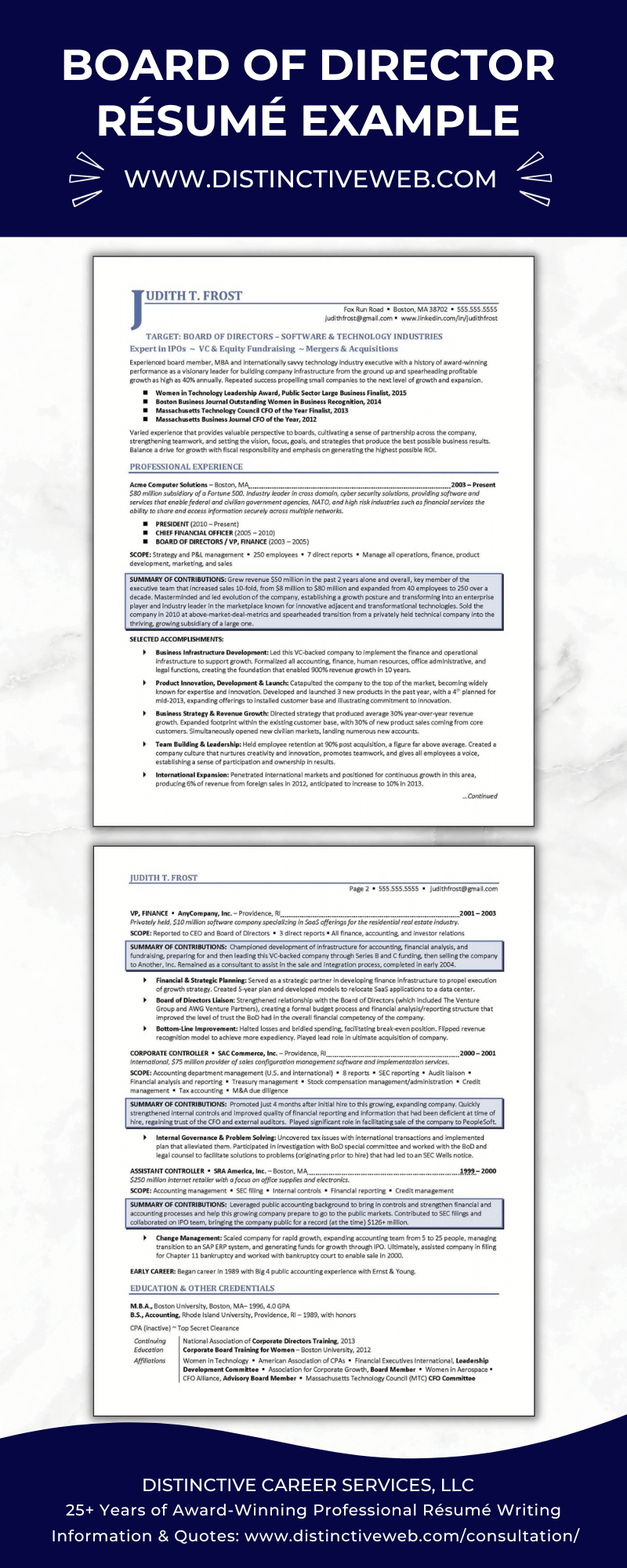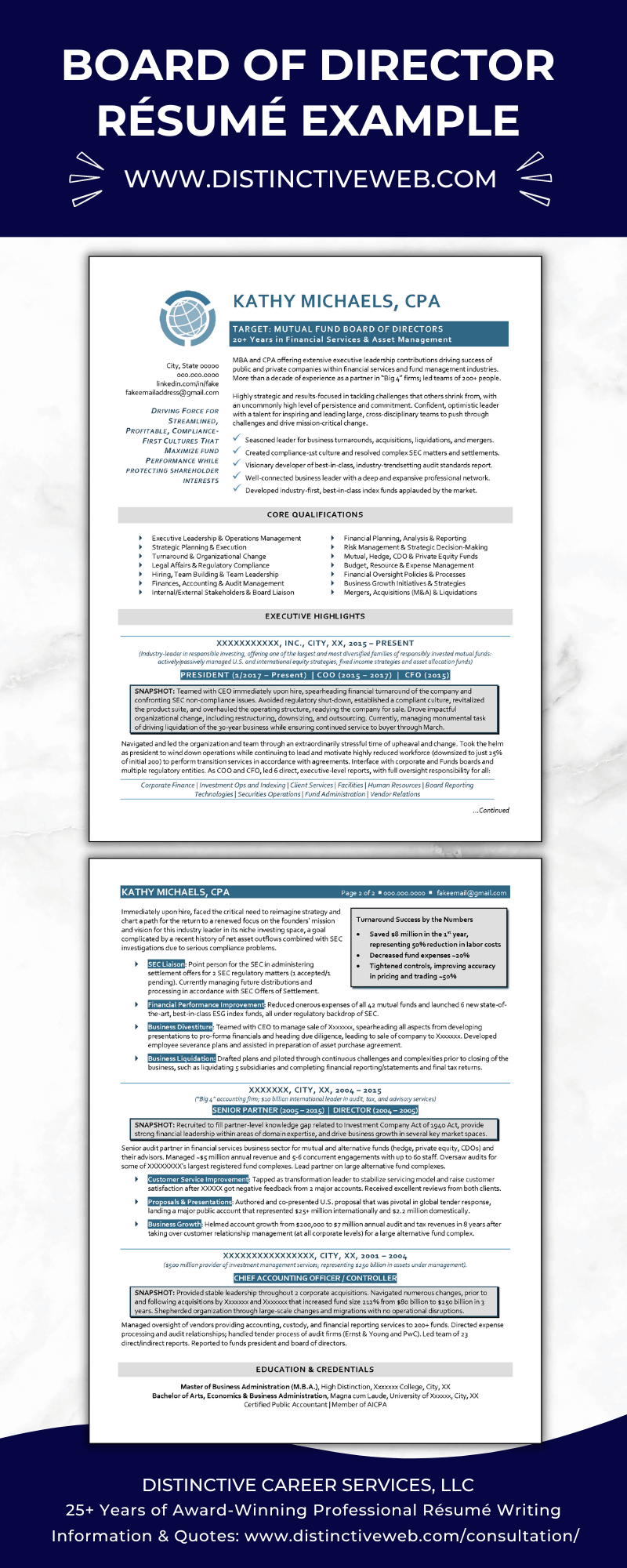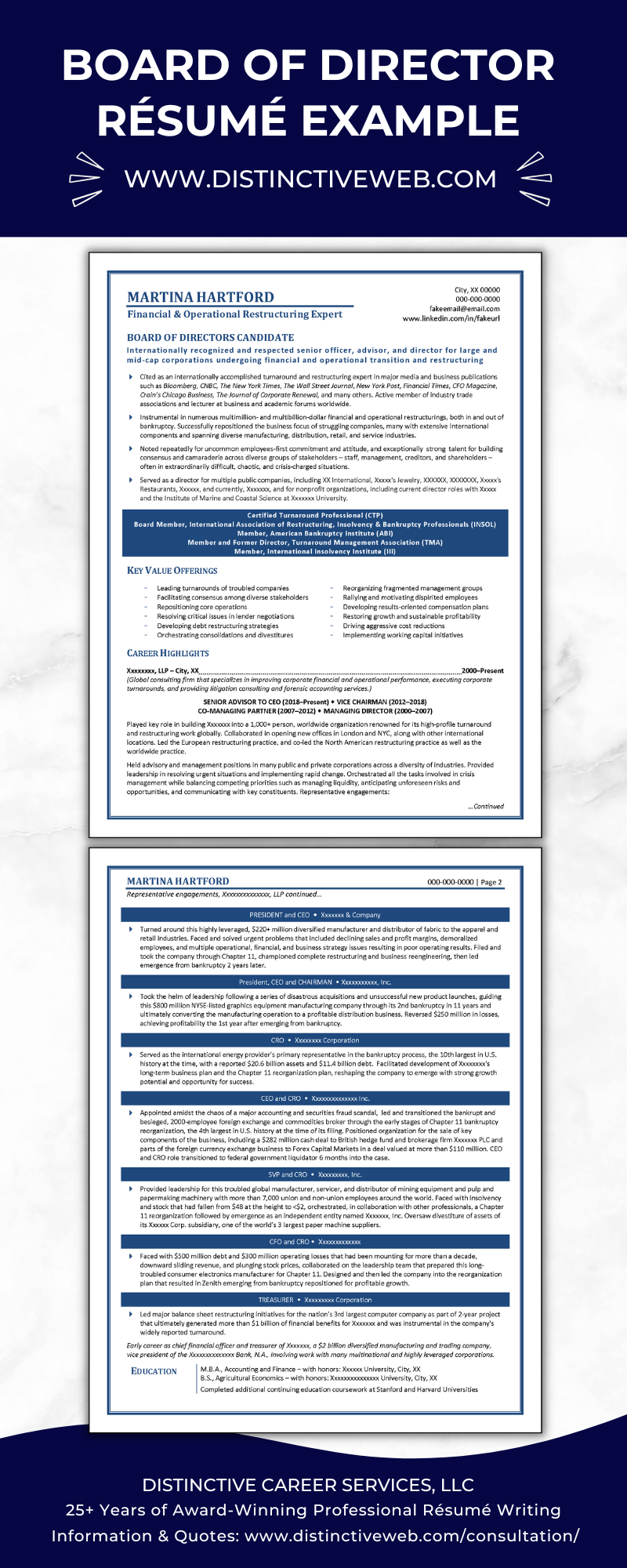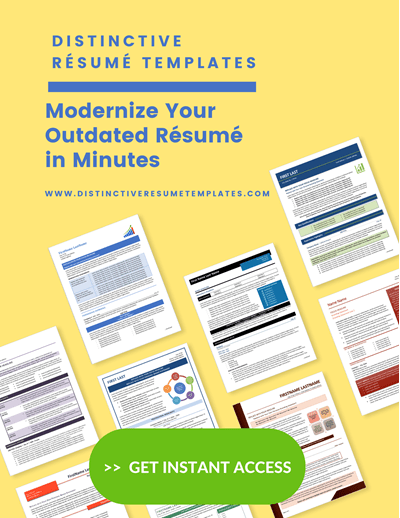HOW IS A BOARD RESUME DIFFERENT FROM A TRADITIONAL EXECUTIVE RESUME?
Examples of Both Board of Director Resumes & Board Biographies
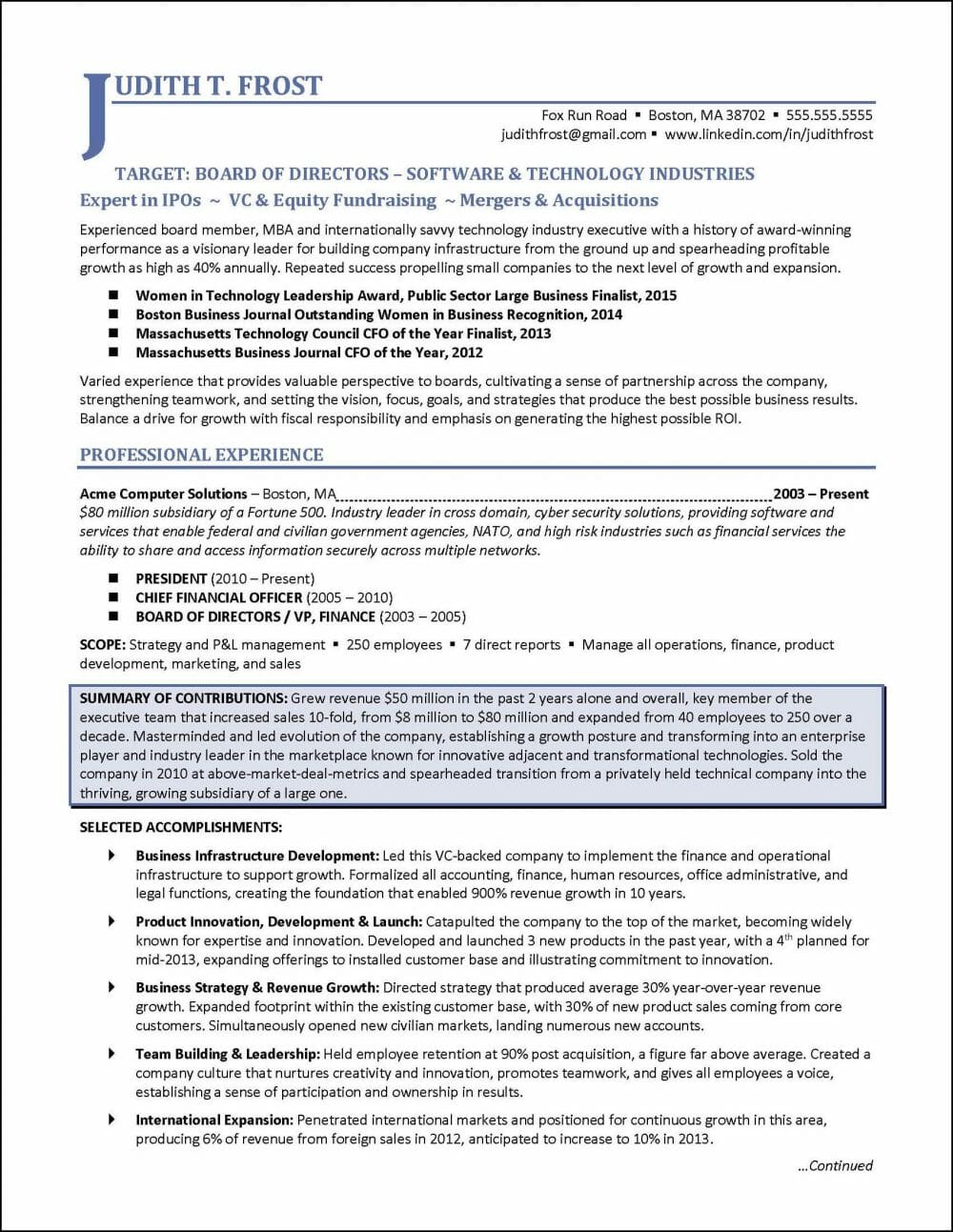
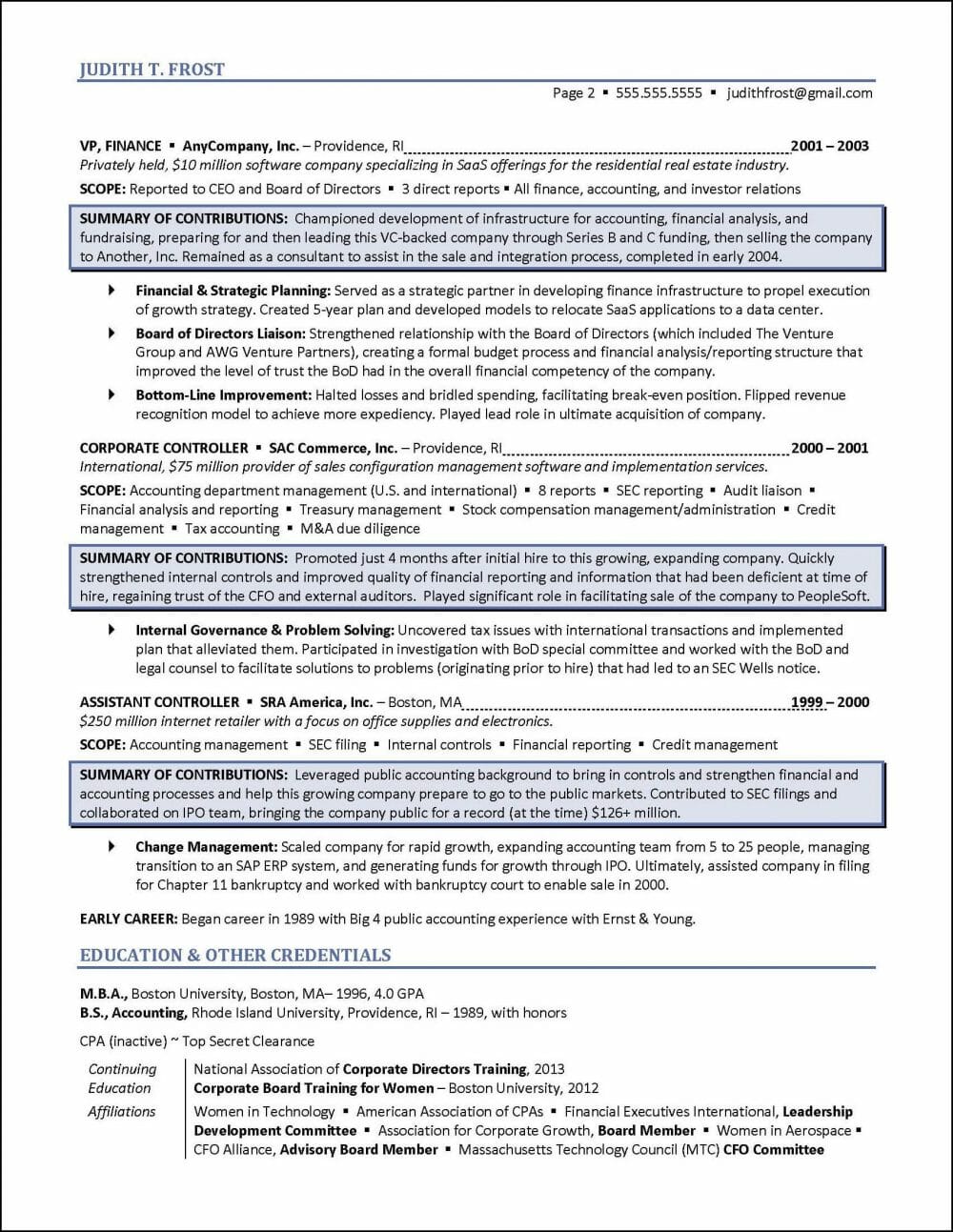
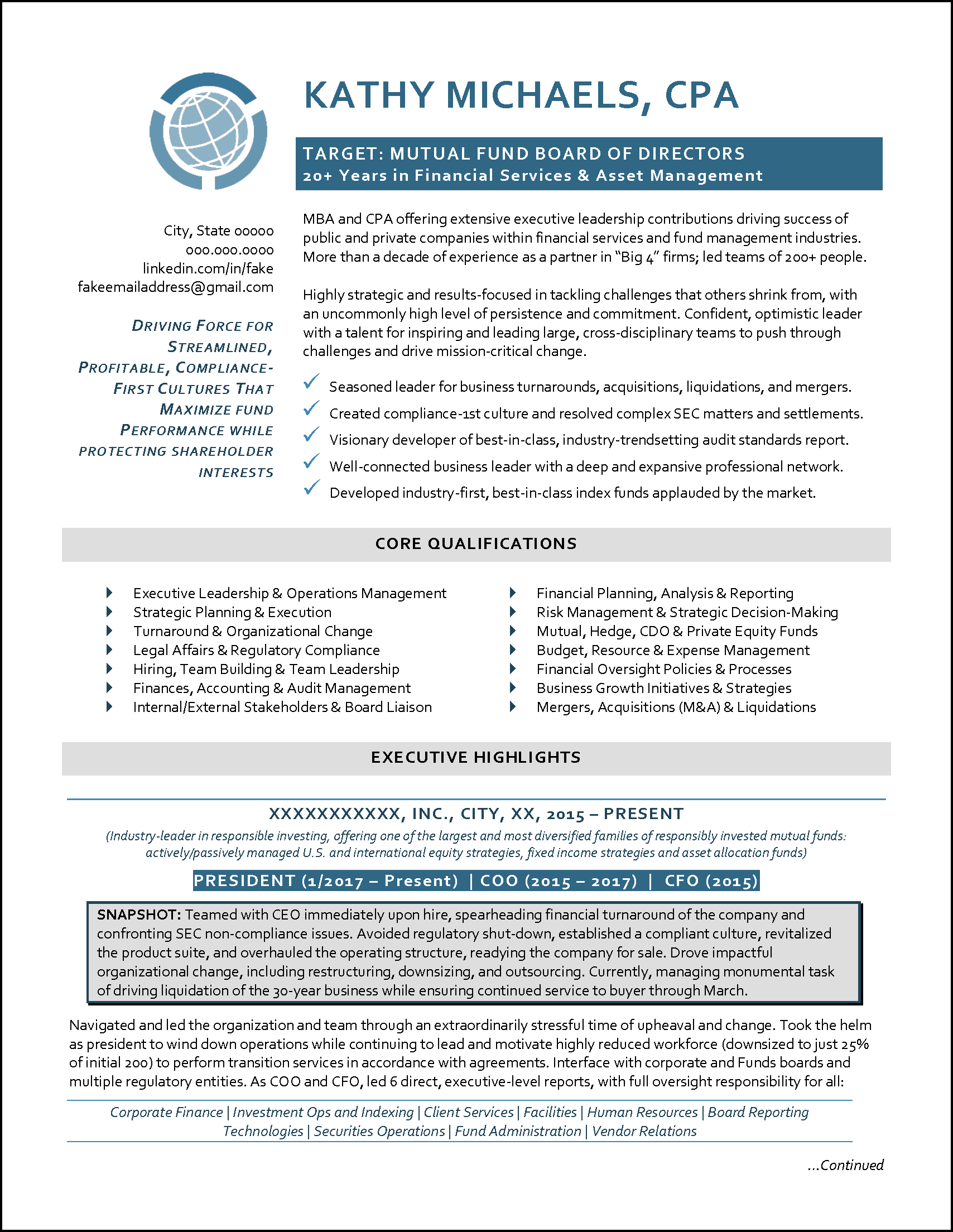
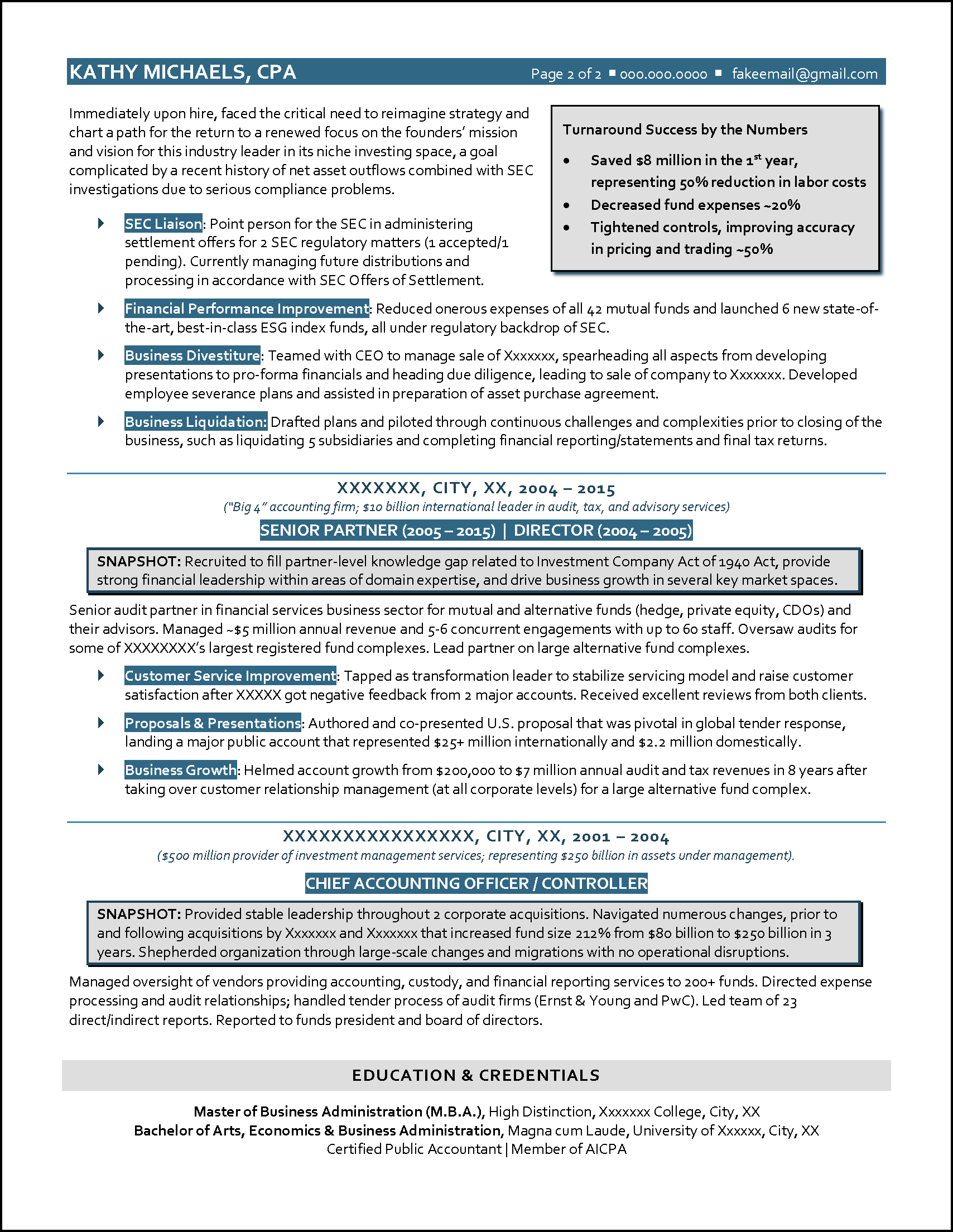
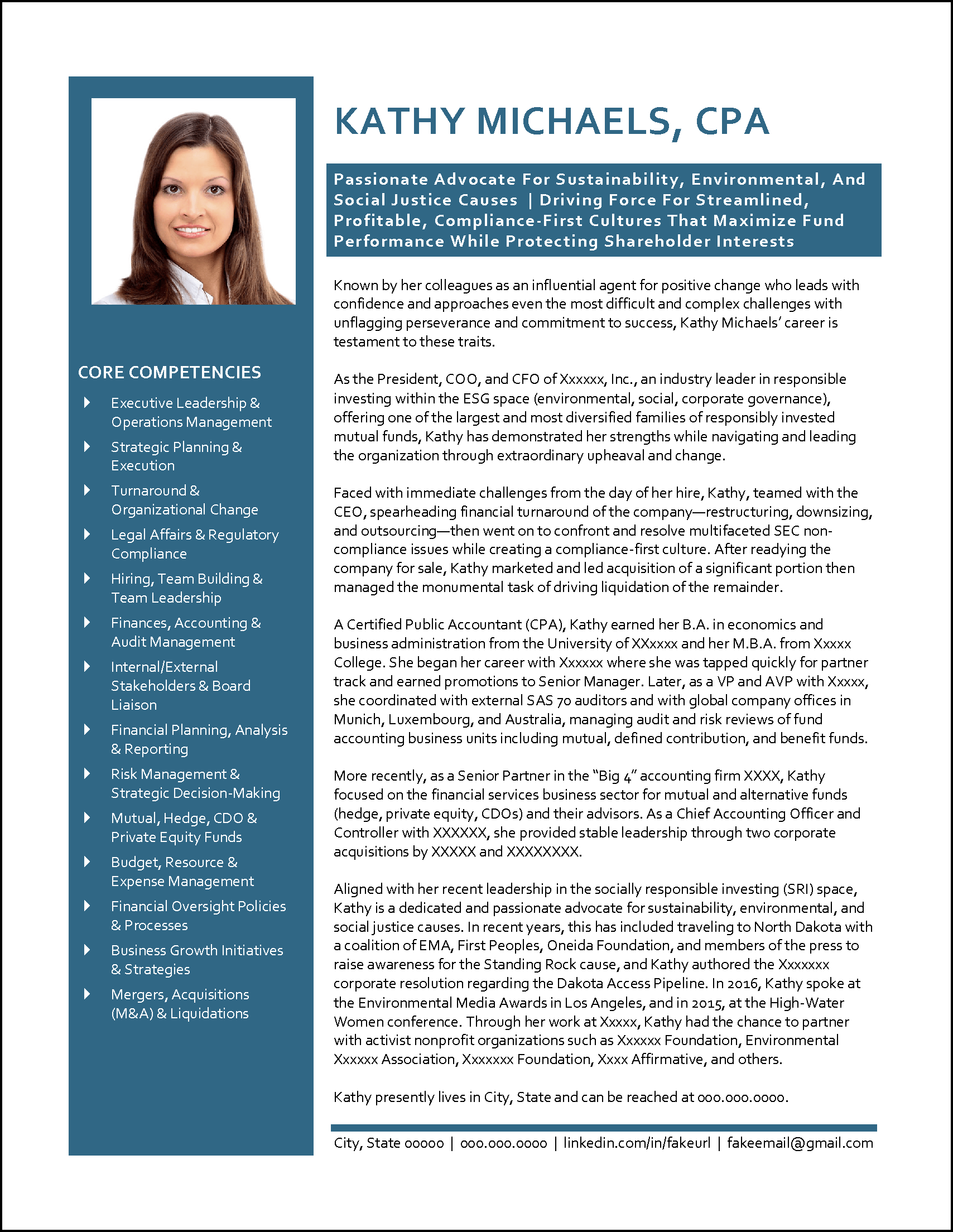
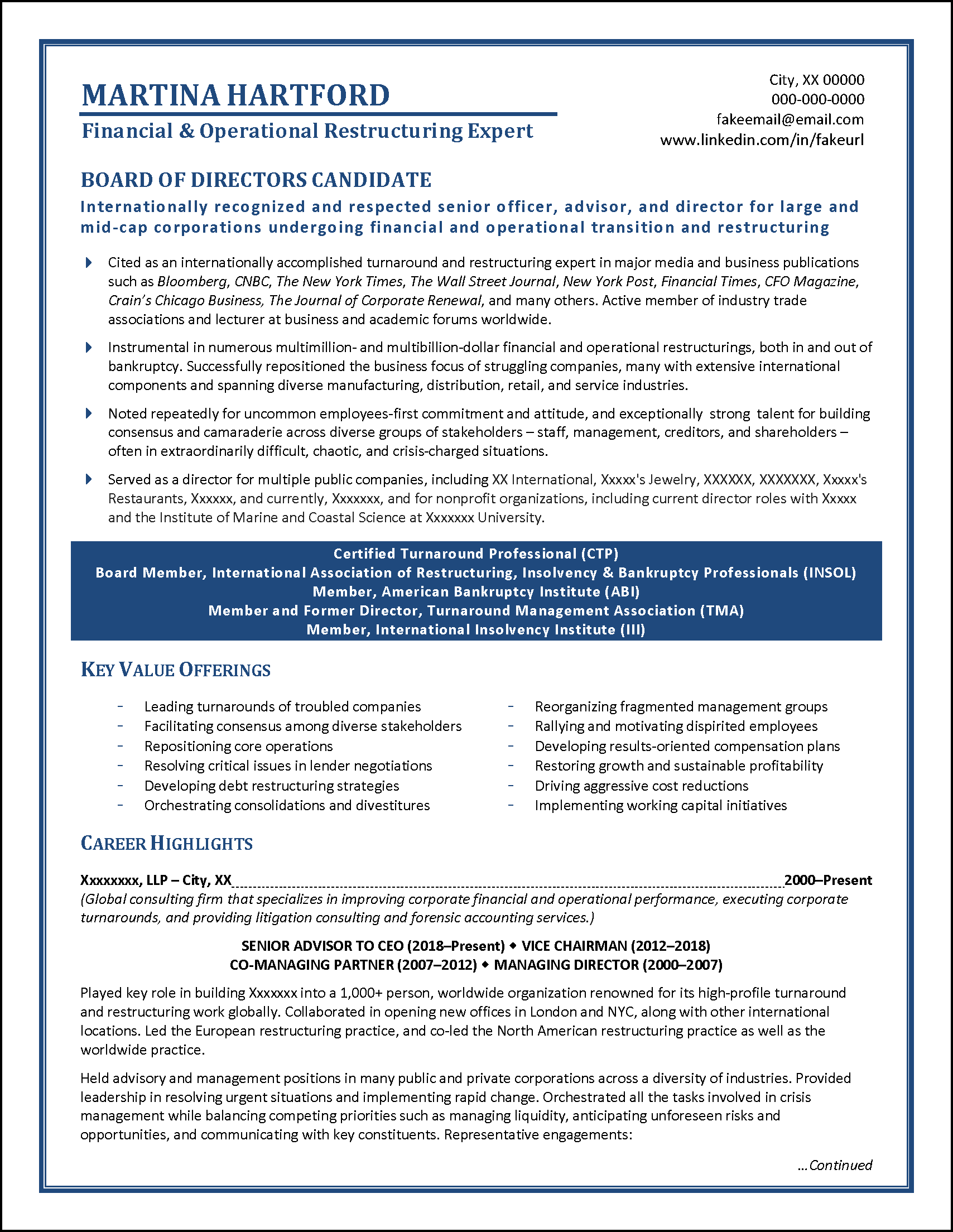
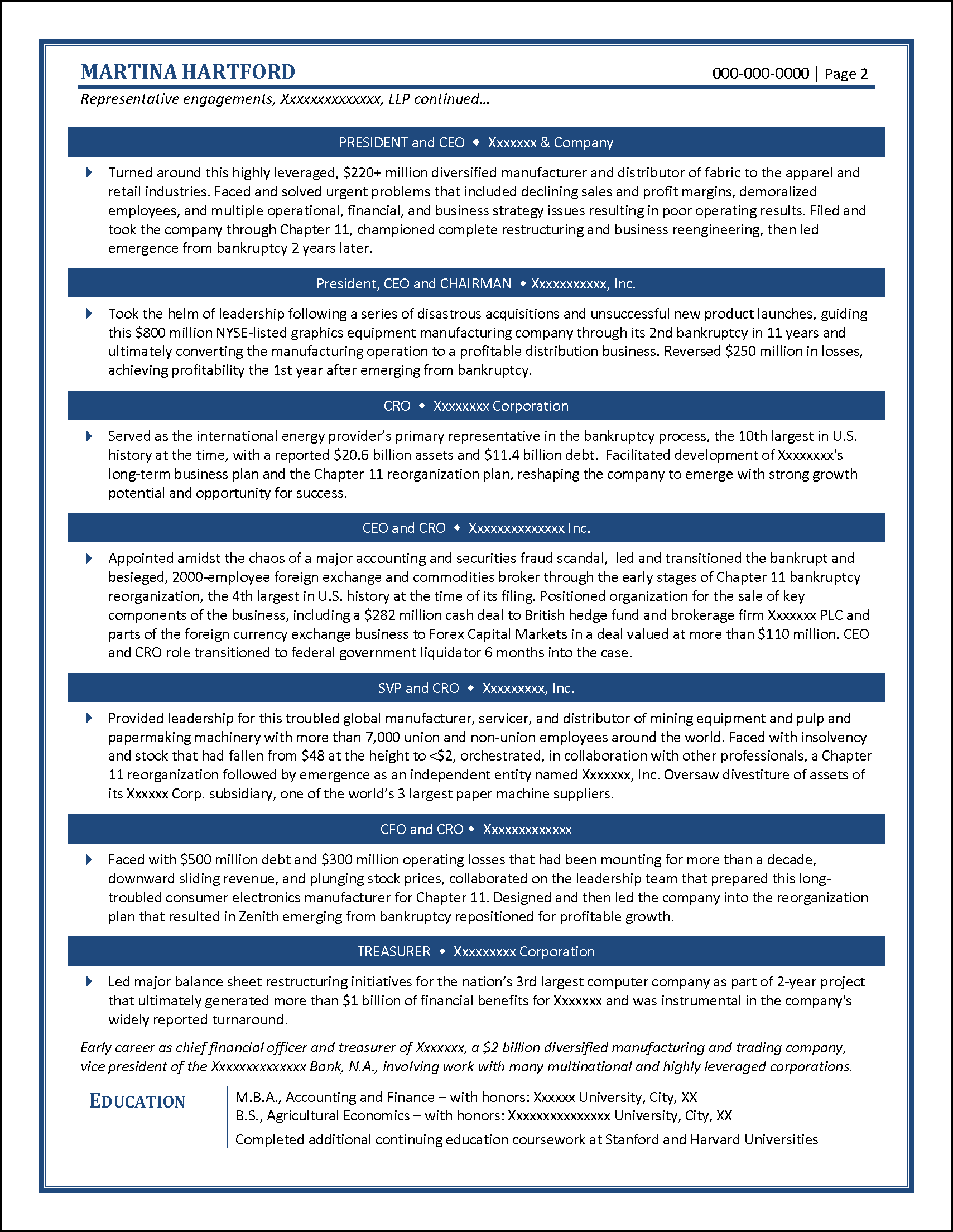
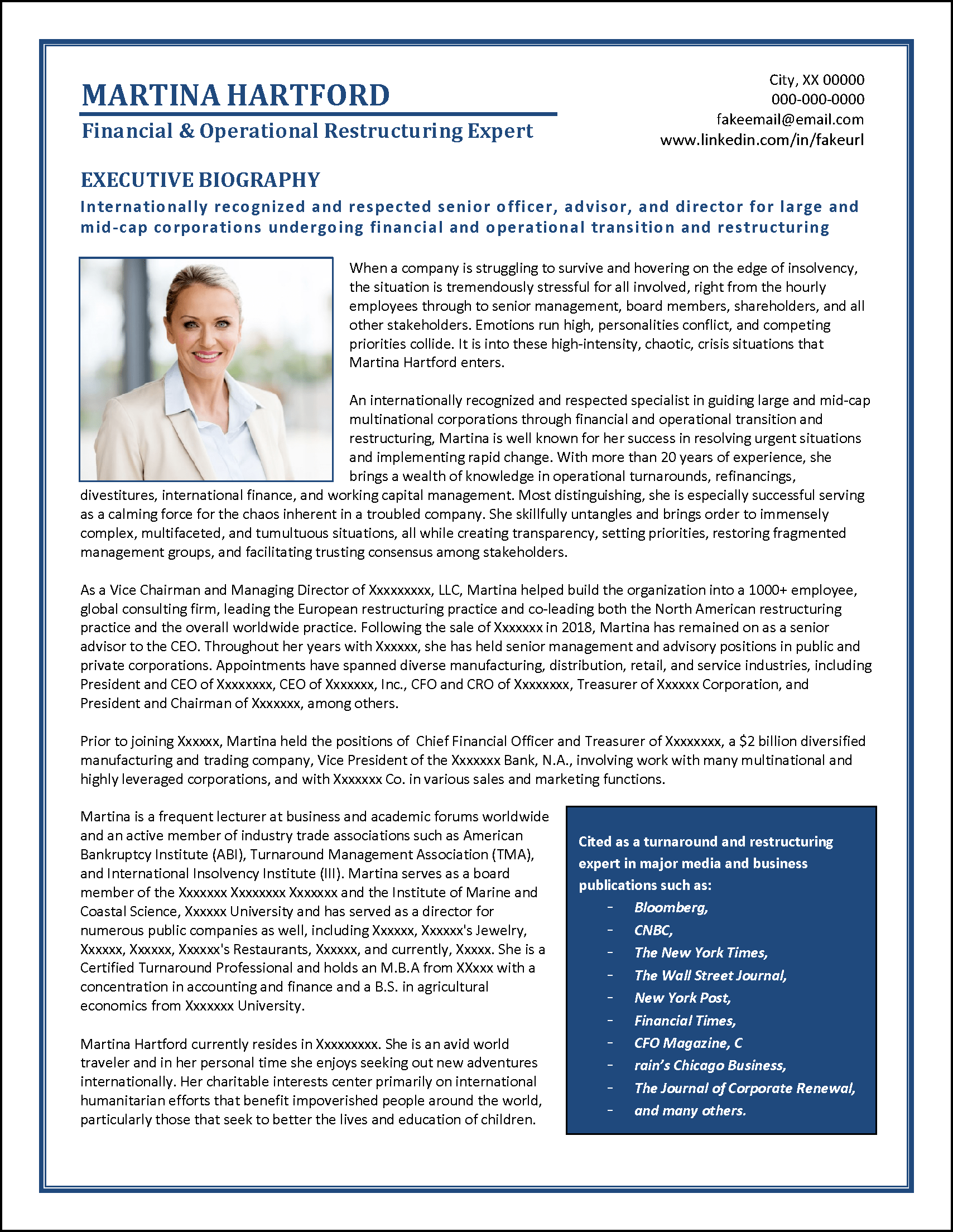
Example Board Resume & Bios Project Brief
If you’ve been asked to submit your resume for a board position, you may be wondering how that resume is different from a resume you would prepare for an executive job opportunity.
You might be surprised to learn that writing a resume to land a position on a board is much the same as writing any other executive resume.
That doesn’t mean that there won’t be any difference between a board resume and, say, a CEO resume. But, the principles behind writing the t wo are the same.
As with any executive resume, before you begin writing, it is essential that you first make sure you understand your audience for the resume. In other words, ask yourself: What will be most important to the nominating and governance committees that will be selecting and interviewing candidates to fill vacancies of the board of directors?
The process is the same for every resume.
- Know your audience and be clear about who you are writing your resume for
- Identify what is most important to your audience in relation to the open position
- Structure your resume to showcase how you are the most ideal candidate to meet those needs
What Should You Include in Your Board of Directors Resume?
What are the factors that are most important for a board candidate to emphasize? The answer will vary according to the company or organization that you are targeting, but some of the most common experiences, areas of expertise, and qualifications that you will want to emphasize include:
- Visionary leadership and executive oversight experience
- Goal-setting and strategic planning skills
- Proven value as a strategic advisor
- Proven ability to work collaboratively within a multidisciplinary group
- Strong communication skills and ability to build consensus
- Industry expertise
- Financial acumen
- Demonstrated problem-solving abilities
- Fundraising abilities
- Public/community relations and experience as a spokesperson
- Other board interaction experience, internal governance experience, or committee work
When you write your board of directors resume, you should selectively include and emphasize accomplishments and past experience that show how you have demonstrated these traits and skills in action.
Whether the board oversees a Fortune 500 company, another type of for-profit company, or a nonprofit organization, there are more similarities than differences.
Every board has articles of incorporation, bylaws, and governing principles that outline the responsibilities of the board of directors.
Take the time to familiarize yourself with these when targeting a specific board of directors. This research will help you develop your resume strategy.
Both for-profit and nonprofit boards have a responsibility to approve, remain current with, and oversee the organization’s strategic plan, putting emphasis on strategic thinking as a desired skill in filling board seats.
Overseeing the financial well-being of the organization they represent is a primary responsibility of corporate and nonprofit boards; however, there are some key differences. Corporations have an obligation to deliver a financial return to stakeholders; therefore, corporate boards are focused on net earnings, stock prices, and dividend rates.
Although many nonprofit organizations have turned their attention toward building and managing investment portfolios, they still rely heavily on fundraising. Because of this, nonprofit boards have a different focus in how they operate, and they consider a member’s net worth or ability to financially support the organization as essential to fulfilling their mission and goals.
Bringing in a variety of perspectives, backgrounds, and experiences can be key to an organization’s success. Whether the board is a for-profit or nonprofit, board member diversity (e.g., gender, socioeconomic background, race, religion, and nationality) has become a high priority. Boards strive to mirror the demographic of their customers/clients and meet the interests of their regulators and stakeholders.
All boards have an obligation to serve as ambassadors for the organization they support, educating influencers and the community about the importance of what they do.
Most boards face the same key challenges — rapidly changing technology, market competition, regulatory restrictions, limited resources, and finding and retaining good people.
Just as your executive resume must illustrate an understanding of these challenges and your ability to address them, your board of directors resume must do the same. To view another example board resume in comparison to an executive resume (it is helpful to see the difference!), take a look at these example targeted resumes.
The several example board resumes (and accompanying board biographies) on this page also illustrate these points in practice.
What Is An Executive Board Biography?
As you can see from the examples on this page, an executive board biography is not the same as a board of directors resume. In contrast to a resume, a biography is written in a narrative format and is most commonly written in third-person perspective (resumes should be written in first-person perspective).
Just like when you created your board resume, you will want to give careful thought to your value proposition. In other words, in what way will you add significant value as a member of a board? Your board biography should be written to showcase this value proposition and the key qualifications you will bring to the table.
If you found these example board of director resumes inspiring, you may also have an interest in reviewing other example resumes for executives. Some popular examples include our senior technology executive resume, example general manager resume, operations manager resume example, corporate president example resume, example CTO resume, example CFO resume, example CEO resume, example finance and operations executive resume, example corporate finance executive, and example VP resume. Our example executive biographies may interest you too.
If you are feeling overwhelmed about writing your executive board resume, stop! We are here to help you. Just schedule a free resume writing consultation to learn more about how our executive resume writing services can be of help to you.
